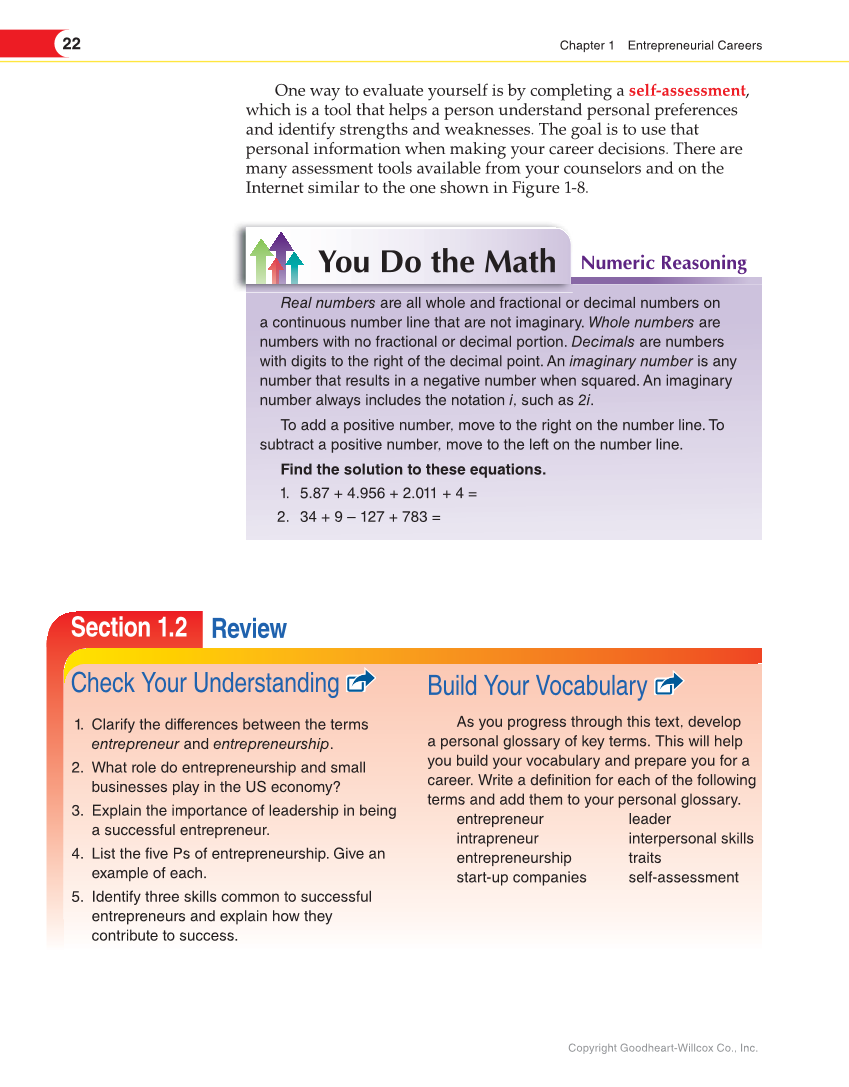22 Chapter 1 Entrepreneurial Careers Copyright Goodheart-Willcox Co., Inc. You Do the Math Numeric Reasoning One way to evaluate yourself is by completing a self-assessment, which is a tool that helps a person understand personal preferences and identify strengths and weaknesses. The goal is to use that personal information when making your career decisions. There are many assessment tools available from your counselors and on the Internet similar to the one shown in Figure 1-8. Review Section 1.2 Check Your Understanding 1. Clarify the differences between the terms entrepreneur and entrepreneurship. 2. What role do entrepreneurship and small businesses play in the US economy? 3. Explain the importance of leadership in being a successful entrepreneur. 4. List the five Ps of entrepreneurship. Give an example of each. 5. Identify three skills common to successful entrepreneurs and explain how they contribute to success. Build Your Vocabulary As you progress through this text, develop a personal glossary of key terms. This will help you build your vocabulary and prepare you for a career. Write a definition for each of the following terms and add them to your personal glossary. entrepreneur intrapreneur entrepreneurship start-up companies leader interpersonal skills traits self-assessment Real numbers are all whole and fractional or decimal numbers on a continuous number line that are not imaginary. Whole numbers are numbers with no fractional or decimal portion. Decimals are numbers with digits to the right of the decimal point. An imaginary number is any number that results in a negative number when squared. An imaginary number always includes the notation i, such as 2i. To add a positive number, move to the right on the number line. To subtract a positive number, move to the left on the number line. Find the solution to these equations. 1. 5.87 + 4.956 + 2.011 + 4 = 2. 34 + 9 – 127 + 783 =
